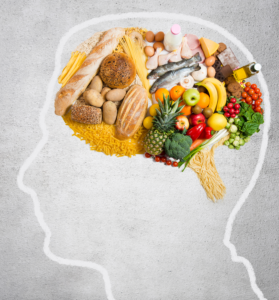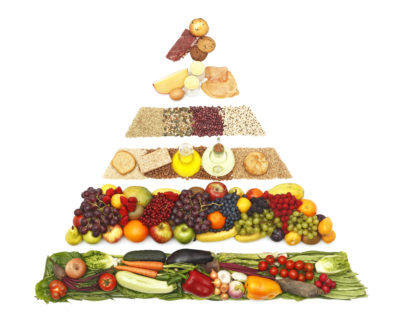 Drinking too much on a single occasion or over time can severely impact your health. When you drink, the process of metabolizing alcohol utilizes nutrients in your body. The liver breaks down most of the alcohol you drink so that it can be removed from the body. When the level of essential nutrients decreases in your liver the bloodstream is called upon to replenish it. As a result, body cells are deprived of critical nutrients and normal body functions can suffer.
Drinking too much on a single occasion or over time can severely impact your health. When you drink, the process of metabolizing alcohol utilizes nutrients in your body. The liver breaks down most of the alcohol you drink so that it can be removed from the body. When the level of essential nutrients decreases in your liver the bloodstream is called upon to replenish it. As a result, body cells are deprived of critical nutrients and normal body functions can suffer.
If you consume alcohol regularly and try to stop, you may suffer from anxiety, insomnia, tremors, shakiness, dizziness, and depression. You may also experience impaired cognitive thinking and poor memory.
About Essential Vitamins & Nutrients
Many of the symptoms described above are caused by nutrient deficiencies, particularly the B-complex vitamins, which are especially vulnerable to alcohol use. These vitamins are essential to mental and emotional well-being. The list of B-complex vitamins includes:
- Vitamin B1 (thiamin) — Deficiencies trigger depression and irritability and can cause neurological and cardiac disorders
- Vitamin B2 (riboflavin) — In 1982, an article published in the British Journal of Psychiatry reported that every one of 172 successive patients admitted to a British psychiatric hospital for treatment for depression was deficient in B2
- Vitamin B3 (niacin) — Depletion causes anxiety, depression, apprehension, and fatigue
- Pantothenic Acid — Symptoms of deficiency are fatigue, chronic stress, and depression
- Vitamin B6 (pyridoxine) — Deficiencies can disrupt the formation of neurotransmitters
- Vitamin B12 — Deficiency will cause depression.
- Folic Acid — Deficiency is a common cause of depression.
Deficiencies of other nutrients can also contribute to the negative feelings that frequently lead susceptible individuals toward another alcoholic beverage. These include:
- Vitamin C — Continuing deficiency causes chronic depression and fatigue
- Magnesium — Symptoms of deficiency include confusion, apathy, loss of appetite, weakness, and insomnia
- Calcium — Depletion affects the central nervous system
- Zinc — Inadequacies result in apathy, lack of appetite, and lethargy
- Iron — Depression is often a symptom of chronic iron deficiency
- Manganese — Necessary for proper use of the B-Complex vitamins and Vitamin C
- Potassium — Depletion is frequently associated with depression, tearfulness, weakness, and fatigue
- Chromium — Enhances glucose uptake into cells. A deficiency can cause hypoglycemia
- Omega 3 EFA — In adults, skin disorders and anemia develops as a consequence of EFA deficiency
Here are some additional nutrient notes:
- Include 250mg Vitamin C, 150mg magnesium, 1500mg calcium and 500 mg niacin from dietary sources each day. A good multivitamin/mineral supplement (like Centrum) is also recommended.
- Omega 3 fatty acids can help to minimize symptoms. Try including 3-4 ounces of fish 2-4 times per week or adding flaxseed to your foods. These are both excellent sources of omega-3 fatty acids. Another way to get these nutrients is with breakfast cereals high in flaxseed. You can also add flaxseed to smoothies. Among the fish, with the highest omega-three fatty acid content are Atlantic and Pacific herring, sardines, Atlantic halibut and salmon, lake trout, coho, pink and king salmon, bluefish, albacore tuna, and Atlantic mackerel
The Importance of Good Nutrition
In general, good nutrition plays an integral part in physical and emotional health. To minimize symptoms that go along with the absence of regular alcohol use and to replenish depleted nutrients, here are some basic recommendations:
Diet Recommendations
- Eat healthily. A simple way to do this is by following the food guide pyramid recommendations. The New Food Pyramid (on the right) has a high proportion of vegetables and fruits with lower proportions of dairy and white meat and a small fraction of red meats and processed foods.
- Avoid foods containing refined sugars and white flours.
- Eat a wide variety of nutrient-dense foods. Stay away from junk food.
- Drink an adequate amount of water each day. Water flushes toxins from your system and keeps your body working correctly. A standard recommendation is to drink eight 8-ounce glasses of water every day. You may need less, depending on how healthy you are, how much you exercise, etc.
- Try to eat at least three healthy meals each, even if your appetite is poor. Smaller portions are fine.
- Avoid caffeine.
- Avoid all sources of nicotine.
A healthy body and mind are attainable with a balanced diet and attention to these simple nutrition guidelines. Add regular exercise to these basics, and good health with the positive energy and feelings associated can be yours!
About Boulder Medical Center
Boulder Medical Center is a group of over 85 primary care and specialty care providers, located in Boulder County, Colorado. Learn more about or providers and find a doctor that is right for you:


